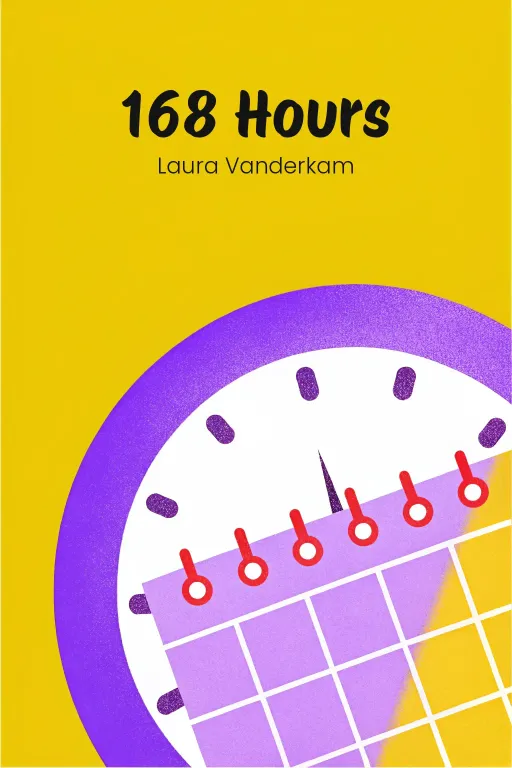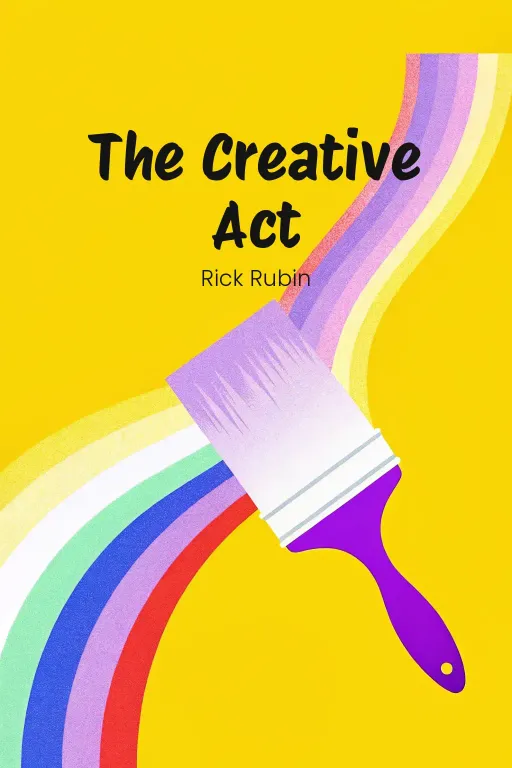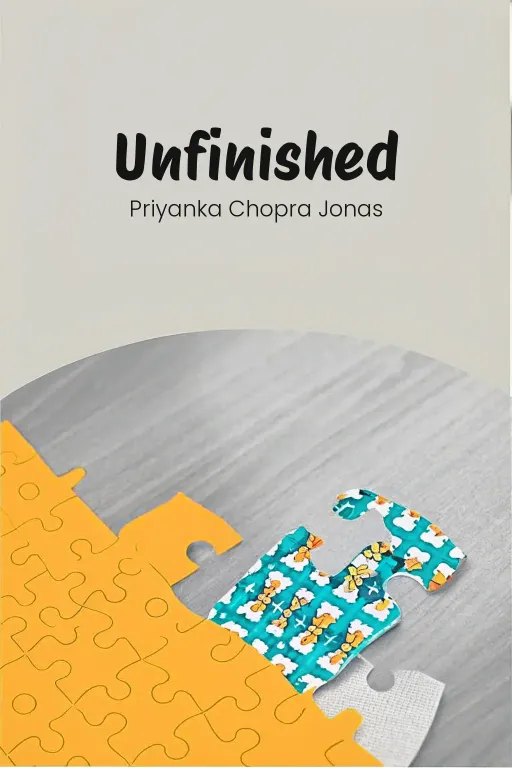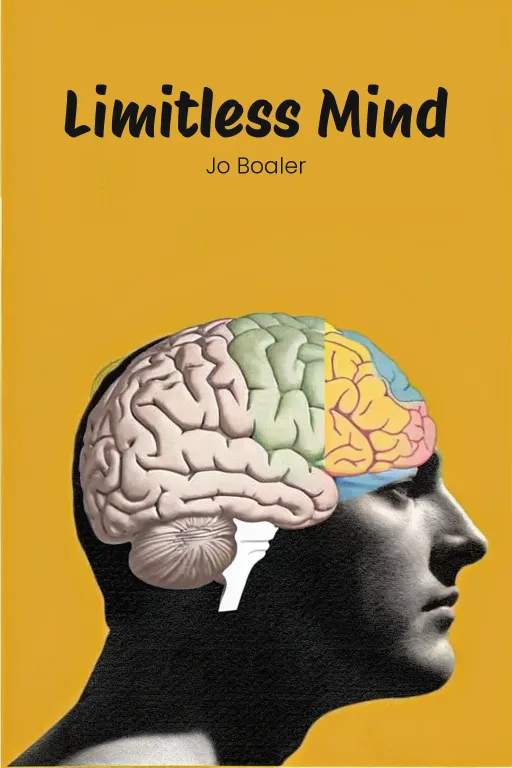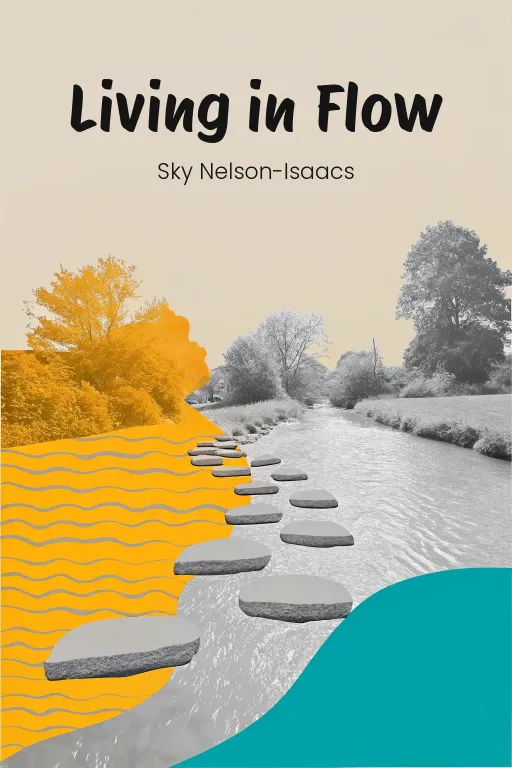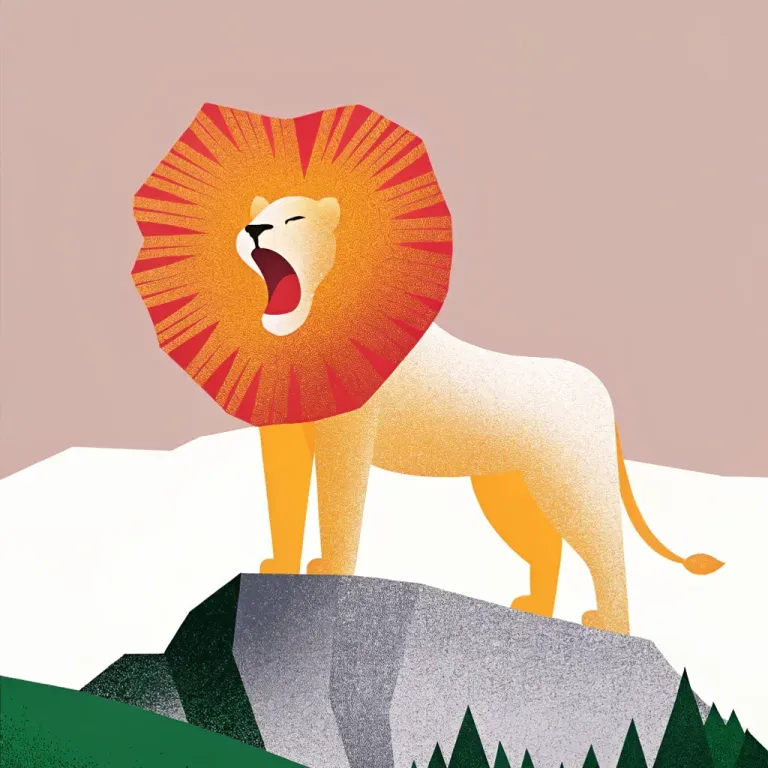
Defeat Fear: Unlock Your Inner Hero
Podcast by Beta You with Alex and Michelle
Fortune Favors the Brave
Defeat Fear: Unlock Your Inner Hero
Part 1
Michelle: Alright everyone, welcome back! Let me kick things off with a question: what's that one thing keeping you up at night right now? Maybe it's a career gamble, a tough conversation you're dreading, or finally booking that trip you've been daydreaming about. Fear, right? It’s that universal gremlin clinging to our backs. Alex: Totally, Michelle. And that's exactly where we're headed today—because fear, as much as we try to dodge it, is also the gateway to, well, courage. Ryan Holiday's “Courage is Calling” really nails this. The whole point of the book is learning how to tap into this virtue that we all respect but often forget we even possess. It’s not just some grand, abstract concept, but something practical, intentional, and—most importantly—something we can actually cultivate. Michelle: Right, it's like courage isn’t just reserved for historical figures, right? Holiday basically says it's a tool you can use in your own life, whether you're leading a company or just, you know, trying to get through a Monday morning meeting without wanting to bang your head on the table. Alex: Precisely! The book breaks courage down into three acts. First, it’s about tackling the fear that's holding you hostage. Then, it’s the building phase. Learning to see courage less as a sudden burst of inspiration and more as a steady, reliable habit. Finally, there's the whole heroism angle—looking at how courage creates a domino effect, inspiring not just action, but actual transformation in the world. Michelle: This sounds pretty grand already. So today, here’s our plan: we’ll break it down into three parts. One—fear. How do you look it in the eye without it swallowing you whole? Two—building that courage muscle. Can bravery really become second nature? And three—this heroism thing. Are we talking superhero movies here, or something more...doable? Alex, take the lead.
Understanding and Confronting Fear
Part 2
Alex: Okay, let's dive into fear. Holiday argues that fear isn’t just this vague, scary feeling we avoid. It's this signal, almost like a guide, pointing directly to the parts of our lives that need attention, the areas that usually require some courage and a bit of change. Michelle: So, not necessarily a bad thing then, right? Fear is more like that uninvited guest who barges in, waving a huge blinking sign that says, "Hey, this is important; better deal with it." Alex: Right! And that's what makes it so interesting. Take Florence Nightingale, for example. She had this intense calling at 16 – to dedicate her life to nursing and caring for the sick. But social norms, especially her family, were major roadblocks. Nursing was looked down upon for a woman of her status back then; it was almost disgraceful. She must have been dealing with a double dose of fear: fear of being rejected by society and jumping into an unfamiliar, incredibly challenging career. Michelle: Exactly, she could have easily stayed comfortable—tea parties, embroidery, and everyone patting her on the back. Honestly, who would have blamed her? Alex: True, and she wrestled with that fear, the fear of being judged or failing, for years. But what's remarkable about her story is that she didn't let it win. She saw that fear as something worth fighting through because the calling was just too strong to ignore. And, you know, she ended up revolutionizing healthcare. Her focus on hygiene and organization during the Crimean War saved so many lives. Michelle: So, the fear was still there, just not as loud as her purpose, right? The interesting part is that it's not about avoiding fear altogether—it's about what you do with it. She turned it into fuel. Alex: Absolutely. And that leads us to how fear often thrives when things are unclear. One of the things Holiday suggests is tackling it logically, breaking it down into smaller, more manageable pieces. It’s about talking back to the primal, emotional part of your brain that tends to blow things out of proportion. Michelle: Which reminds me of Pericles and that storm at sea, right? Picture this: his troops are freaking out, paralyzed by fear because the storm feels like some angry god. Then Pericles strolls in, all calm, with two stones. He bangs them together, goes, "See? Thunder. Clouds bumping into each other," and suddenly everyone chills out. Alex: It's brilliant, isn't it? He took the unknown, the mystery of thunder, and made it tangible. By doing that, he removed the fear and put it into the realm of understanding. It gave his troops not just a sense of calm but also the confidence to keep going. Michelle: Right, he turned down the volume on their fear dial. What I love, besides Pericles doing a magic trick with rocks, is how relatable it is. Fear loves the dark. Shine a light on it, explain it, and, bam, it shrinks. Alex: Exactly. That’s why "fear-setting," which Tim Ferriss talks about and which comes from the Stoics, is so powerful. It’s similar to that premeditatio malorum, or "thinking about bad things beforehand" idea. You paint a vivid picture of the worst-case scenario, not to dwell on it, but to take away its power. When you look at it rationally, you see that it’s often inflated, way scarier in your head than it is in reality. Michelle: That makes me think of Ulysses S. Grant and his "terrifying wolves." This story is the perfect way to understand fear. Grant's walking through the Texas woods at night, hears all this howling, and thinks he's surrounded by a massive pack of wolves. His brain is going wild, imagining the worst. But when he gets closer? Two wolves, and they're not even singing in harmony. Alex: It's such a great example of how our minds blow things out of proportion. To Grant, it was a full orchestra of terror, but what he realized—fear inflates the unknown, making challenges seem impossible. But once you face it, you often find it’s much smaller than you thought. Michelle: Exactly, so whether it's two wolves, real or imagined, or the fear of public speaking, or failing at work, it's the same lesson. Getting closer, analyzing it, facing reality, that's what shrinks fear. Alex: And it’s not just about shrinking it, it's about seeing them differently. That’s what courage is—redefining fear as something you can handle. Instead of an obstacle, you see it as a call to action.
Cultivating Courage as a Habit
Part 3
Alex: So, shifting gears to action, this is where we move from just facing our fears to actually using them to propel us forward . The goal here is to make courage a habit, something we do almost without thinking, part of our everyday lives, not just this extraordinary, once-in-a-blue-moon event . Michelle: Exactly, Alex . So it’s less about these big, dramatic moments and more about those smaller, everyday choices we make ? I think most people like the idea of being courageous, but they're probably wondering, "Okay, how do I actually make that a habit ? Where do I even begin?" Alex: Start small, Michelle . Holiday emphasizes that courage isn’t just about these massive gestures; it's built gradually . Preparation is key . Take public speaking for instance . It’s consistently ranked as one of the biggest fears out there . People dread the idea of standing on a stage, imagining all the ways it could go wrong . Michelle: Oh man, the classic nightmare of being naked in front of an audience . Been there! Alex: Totally! But that fear doesn’t have to be paralyzing . If you're terrified of presenting, preparation is your shield . Practicing the speech repeatedly, fine-tuning the wording, getting the timing right—all that repetition not only improves your delivery but also builds your courage . You're slowly getting used to the fear . Michelle: So, preparation isn’t just about practicalities, it's about retraining your brain . You're teaching it to think, "I've got this . I know what I'm doing ." I suppose this goes beyond just public speaking, doesn't it ? Like, athletes spending countless hours perfecting the same moves so that when it's game time, they react instinctively, not fearfully . Alex: Exactly . Think of a gymnast who practices thousands of flips on a balance beam . By the time they get to the competition, courage isn't a last-minute, heroic effort—it's ingrained . Their preparation gives them the confidence to act decisively, even when the pressure is on . In a lot of ways, courage is the result of all those small acts of perseverance . Michelle: Alright, so preparation sets the stage, but what about those unpredictable moments when you're staring fear in the face and can't prepare ? Say someone is terrified of networking events but has to go to one right now—how do you make courage a habit in that situation ? Alex: That's where those small, intentional acts of bravery come in . Think of courage as a muscle—you have to work it out regularly to make it stronger . It’s about deliberately putting yourself in uncomfortable situations in small, manageable ways . So, if networking is scary, your first courageous act might be just saying hello to one person at the event . Next time, you push yourself a little more—maybe you have a longer conversation or introduce yourself to a small group . Michelle: So it’s about slowly building up, right ? Not jumping into the deep end but gradually wading in . I actually like that approach; it feels… achievable . Alex: Exactly! And the combined effect of those little steps can be transformative . Over time, what used to feel terrifying becomes almost automatic . There’s a great example in the text about honesty, specifically someone who challenges flawed ideas in team meetings at work . Speaking up might be intimidating at first, but as they keep doing it, their courage grows—and it influences others too . Their small acts of bravery create a ripple effect . Michelle: That ripple effect is fascinating . The idea of courage being contagious isn’t just a nice thought—it’s something you actually see happen . Think of protests or social movements . It only takes one person to stand up, and suddenly others around them find the strength to follow . That's how revolutions get started . Alex: Absolutely . And even on a smaller scale, you see it in communities or workplaces . If leaders create an environment where courage is encouraged—by recognizing risk-taking or honest feedback—it signals that bravery is not just valued but also expected . That's how you create a culture where courage thrives collectively . Michelle: Okay, but let's say someone listening is thinking, "I get it—preparation helps, small steps matter, courage inspires . But what do I “do” when I'm paralyzed by fear?" Any practical tips ? Alex: Absolutely . A really effective strategy is reframing—looking at a fearful situation from a new perspective . Imagine you’re afraid to pitch an idea to your boss . Instead of thinking of it as a potential failure, reframe it as a learning opportunity . What's the worst that could happen ? Your idea isn't accepted ? Okay, but you're gaining experience, testing your idea, and building resilience . Michelle: So the fear gets a makeover . Instead of a "do-not-enter" sign, it becomes a neon arrow pointing to a challenge, an opportunity to grow . Alex: Exactly . And this ties in closely with Tim Ferriss’ “fear-setting” technique and the ancient Stoic practice of premeditatio malorum. Basically, you write down your fears, break them down, and imagine the worst-case scenarios in detail . That takes away the vague dread that freezes us and replaces it with clarity . Michelle: It's funny, it's almost like fear wants to stay undefined because the moment you define it, it loses power . Like those wolves of Ulysses S . Grant . Fear thrives on exaggeration, doesn't it ? Alex: It does . And that's why making courage a deliberate habit is so important . It's not about suddenly deciding to be fearless one day; it's about making courage a part of your everyday routine . Whether it's through preparation, small daily acts of bravery, reframing challenges, or practicing fear-setting, you're teaching yourself to view fear not as the enemy but as an opportunity . Michelle: And once that becomes second nature—when courage appears not because the moment calls for it but because you've trained yourself to respond—that's when you've truly mastered the habit .
Heroism and Moral Courage
Part 4
Alex: Okay, Michelle, we’ve explored fear and how to reframe it. Now let's dive into the big one: heroism and moral courage. It's about expanding courage to its highest form, looking at how personal bravery can influence society and tackle deep-rooted issues. Michelle: Right, the grand stuff. Heroism—not just rescuing cats or climbing mountains, but really changing the moral landscape. So, Alex, how do we connect personal courage to societal change? Alex: Heroism is about seeing courage as a service, as something bigger than yourself. A perfect example is Charles de Gaulle during World War II. When France fell to Germany, and many in its government surrendered or collaborated, de Gaulle stood firm. He saw it as a moral failure, not just a political one. Surrender went against everything he believed France stood for. Michelle: So, instead of sticking around, he heads to London. Talk about drama! But how did that show real moral courage? Alex: Well, he wasn't just choosing exile. De Gaulle risked everything—his life, reputation, political future—for the idea of French sovereignty. It wasn't just about reclaiming land, but defending a principle, a national identity. From London, he urged the French to resist the occupation. And he knew it might not work. No one is guaranteed a hero's welcome home. Even his allies doubted him at the time. Michelle: He was a real underdog, then? No government really backing him, no army, just... conviction? Alex: Exactly. He bet everything on his belief in resistance. And despite initial isolation and ridicule, his resolve united the Free French Forces and inspired the Allied effort to liberate France. His sacrifice was immense. He showed how moral courage inspires change. It starts with one person choosing to do what's right, even when it’s incredibly tough. Michelle: Okay, de Gaulle is a grand, historical example—courage to lead a nation back. But heroism isn't always on such a large scale. Gandhi, for instance, took a quieter, but equally revolutionary approach. Alex: Absolutely. Gandhi shows a different side of moral courage. His nonviolent resistance, especially the Salt Michelleh of 1930, wasn't just about opposing British salt taxes. It was a profound moral statement. By marching to the sea and defying the law that exploited India's poorest, Gandhi showed how ethics can destabilize unjust systems. Michelle: Right, and if I'm not mistaken, Gandhi wasn’t just after the tax itself, but the whole concept of colonial exploitation. It was about equality, human dignity, and self-determination. Alex: Precisely. And it was so risky. Gandhi knew his actions could provoke violence—and they did. His followers faced brutal retaliation. Yet his courage inspired millions, uniting diverse groups in India. True courage isn't just the absence of fear; it's having that firm moral certainty. Michelle: But you see, his conviction wasn’t just his own. It built a movement. That takes us back to this idea of heroism being contagious. His Salt Michelleh didn’t just win hearts, it moved people to act realizing they, too, could stand up to injustice. Alex: Exactly. Now, here's the thing: heroism doesn’t have to be on a grand historical scale to matter. It's in everyday acts of moral courage. Think about whistleblowers. When someone exposes corruption, in say government, tech, or healthcare, they act knowing it could ruin their career, or worse. Michelle: Yeah, whistleblowers aren’t exactly living it up in the spotlight with fanfare. It’s a pretty lonely, vulnerable spot. You’ve got your Edward Snowdens and Frances Haugens—people who saw something unethical and decided speaking up was more important than staying safe. Alex: Precisely. They’re perfect modern examples of moral courage. They're driven by an ethical commitment that’s bigger than themselves, even though the personal cost is often devastating. Yet their actions can force systemic change. It shows heroism isn’t out of reach—it can be as simple as prioritizing ethics over comfort. Michelle: But hold on. What about the critics who say that standing up to power sometimes looks like rebellion for its own sake? Is there a line between moral courage and reckless defiance? Alex: That's an important point, Michelle, and it comes down to intention and principle. True moral courage comes from a place of ethical clarity. It's not about ego or just opposing authority—it’s about fighting for justice. Gandhi wasn’t marching for attention; he was addressing exploitation. De Gaulle wasn’t defying his government for personal gain; he was defending French sovereignty on moral grounds. Michelle: Got it. The critical thing is the moral foundation—the why behind the courageous act. That makes me wonder, Alex, can heroism be taught? Or are we just hoping the right people step up at the right time? Alex: It absolutely can be taught, and that’s one of the most empowering takeaways from Holiday’s book. Like courage, heroism is cultivated through reflection and practice. There is the Stoic practice of "premeditating challenges." By imagining challenging moral situations, visualizing your responses, and anchoring these in your core values, you prepare yourself for choices that require bravery. Michelle: So, you’re saying we need chances to practice moral courage, like training for a marathon? But instead of miles, we’re running through ethical what-if scenarios? Alex: Exactly. Humanities courses, ethics workshops, even daily introspection—they all build the moral strength needed for courageous acts. And this isn’t just theory. Role-playing ethical dilemmas, for instance, has been successfully used in classrooms and leadership programs. It trains people to uphold their values when it “really” matters. Michelle: So the next time someone’s facing injustice at work, or a moral gray area, they’re already equipped. They're not just winging it, they’ve trained that courage muscle to act. Alex: Precisely. And the impact of heroic actions is huge. Whether it’s Gandhi uniting millions through protest, de Gaulle inspiring resistance, or a whistleblower demanding accountability, heroism inspires others to see their own potential for courage. It changes the way we all think. Michelle: So, what you’re saying is, heroism isn’t about capes and masks. It’s anyone, anywhere, making deliberate, value-driven choices that protect and uplift society. That’s empowering, but also kind of scary. Because, Alex, that means we might just be the heroes in this story.
Conclusion
Part 5
Alex: So, Michelle, to bring our discussion to a close today, we've really dug into fear, haven't we? Recognizing it as both a necessary hurdle and, interestingly, a signpost. Confronting fear head-on, it seems, reveals pathways to growth. We saw that in historical figures like Florence Nightingale and Ulysses S. Grant. They reframed fear with reason and action, turning it into an ally. Michelle: Right. From there, we talked about courage. Not as this grand, once-in-a-lifetime thing, but something built bit by bit. And preparation, small acts of bravery, and that reframing of fear thing all play a part, practical steps for making courage a regular habit. Honestly, that part felt pretty achievable—even in everyday moments. Like, speaking up in a meeting, or just saying “yes” to something that makes you uncomfortable. Alex: Exactly. Then, we got to heroism. Gandhi and de Gaulle gave us examples of moral courage, didn't they? Showing how one person's conviction can actually inspire societal change. Heroism, we decided, isn't about grand gestures. It’s about acting on your principles, often pushing past your own comfort for the greater good. Michelle: Which brings us to the crux of it all: courage, in all its forms, is learnable. Whether you’re facing personal demons or standing up for something bigger than yourself, the way forward is action. And fear, well, it doesn't disappear—it just seems smaller compared to what you're fighting for. Alex: Absolutely. So, a little call to action for our listeners: Think about a moment in your life right now—big or small—where fear's holding you back. Ask yourself, what's on the other side of it? What's one thing you can do today to move toward it? Answering that call isn't just brave, it's a spark that could lead to real transformation. Michelle: And remember, courage doesn't just magically appear fully formed. It grows. So start small, challenge yourself daily, and watch that courage "muscle" get stronger. You might even surprise yourself with how far you can actually go. Alex: Thanks for joining us for this conversation about courage. Until next time, face those fears, take that step, and remember—you are so much more capable than you might think.




